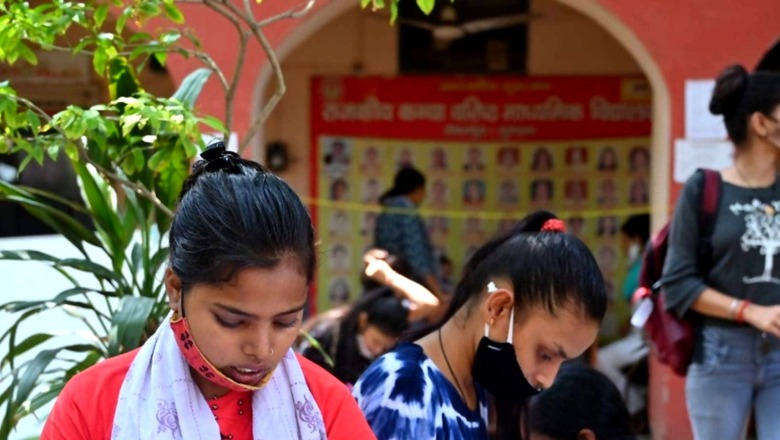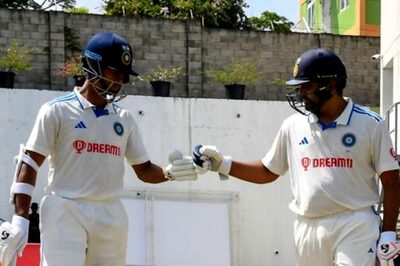
views
India’s unity has never been a necessity, but has been its uniqueness” – This is precisely what Prime Minister Narendra Modi said on the occasion of National Unity Day — and the 147th birth anniversary of Sardar Vallabhbhai Patel.
As PM Modi chose to celebrate India’s ‘ekta’ in Gujarat’s Ekta Nagar, he also said campaigns are being run to make one Indian language an enemy of the other.
Remember that the PM had, on several occasions, pointed out that knowledge of English has gone on to be considered as a mark of being intellectual rather than it just being perceived as a medium of communication — a sentiment that has been echoed by home minister Amit Shah.
PM’s statement has come in the backdrop of the controversy over the recommendation of a Parliamentary panel to make Hindi the medium of instruction in central educational institutions, which has led to southern chief ministers like MK Stalin and Pinarayi Vijayan accusing the Centre of ‘Hindi imposition’.
Remember, there is no national language for India, and the Indian Constitution had never titled Hindi as the official language of the country. It was only in 1950, that it accorded the status of official language to Hindi – that too along with English under Article 343. Now, India has as many as 22 official languages, and another 41 are queued to find a place in the 8th Schedule of the Indian Constitution, which was formed as a solution to the problem of demarking the state borders based on language when there are in fact multiple languages spoken across the country. Also, the government is obligated to ensure the development of each.
According to the 2011 census, which is the last reliable information on India’s diverse population, only about 44% of Indians speak Hindi, so is the argument of shunning the colonial mindset by promoting only Hindi really justified? And if the Centre really isn’t just throwing its weight behind Hindi, then why the backlash? How much of water does this claim of vilifying Hindi really hold?
Even as we mull over these questions, let’s add another important one to the list. Is this bias over language all set to impact education? The government is preparing to get states to launch medical courses in regional languages, and Madhya Pradesh has become the first state to launch MBBS textbooks in Hindi. This unveiling by Amit Shah, that happened to much fanfare, had stirred anti-Hindi agitations, with the Opposition, especially in the South, contending that the move is nothing more than a poll gimmick. It is odd that now Tamil Nadu too is getting MBBS textbooks in Tamil ready.
Though the supporters of this move go on to quote examples from countries such as China and Russia where official languages are the sole medium of instruction in all the technical and non-technical courses. While this coupled with the argument of how academics have been of the view that education should be in regional language as it naturally enhances students’ ability to learn, does make a strong point, but they may well be an over-simplistic way to look at a complex problem.
For one, several doctors have raised concerns around the challenges of getting humongous amount of medical terms translated into many languages, and have warned against the loss in maintaining quality. Second, (fact check) – many medical colleges in countries like China teach both in English and Mandarin and there is also a growing demand in these nations for enrolling children in ESL (English as a Second Language) courses. So, is it really wise to compare Hindi with Chinese or German, given India’s diversity? Moreover, when compared to English, how strong a resource does Hindi, or any other vernacular language offer to support the young job-seeking populace?
PM Modi offered a counter to this claim as he advocated the use of local languages, saying this would make sure that those uncomfortable with English weren’t left behind. He further said English was a hindrance and many young talents from villages could not become doctors and engineers because they were not well-versed with the language.
Interestingly, a similar claim, however, of a slightly different nature, was made by Sardar Patel himself in 1950 when he underlined that if the people of South India did not learn Hindi, the “national language”, they would be lagging behind both in Central organisations and government.
Now that we are linking language with employment, isn’t English the great leveller, allowing a dialogue with the rest of the world? If we look at Medicine alone, many practicing doctors and medical students would second this that it is evidence-based and constantly evolving with the introduction of novel research. Treating cases sometimes requires consulting multiple books, research papers. This needs a sound and established system of translation, before we can even begin thinking about phasing out English.
According to reports, for the translation of the three books of MBBS first year syllabus in Madhya Pradesh, a team of 97 doctors were put on job. The translation itself couldn’t have been achieved overnight. It was a painstaking four months’ work, clearly suggesting that the doctors were over burdened with a responsibility they weren’t even ready for.
Things would be no different for Tamil Nadu. In a country where health care infrastructure needs constant push and building, how feasible is shouldering the existing workforce with unnecessary academic responsibility?
Also, why is a state like Tamil Nadu that has also blocked ‘Hindi imposition’ practicing its own brand of language chauvinism? When the PM said forces that were perturbed due to India’s progress still exist and campaigns are being run to make one Indian language an enemy of another, isn’t this another cloaked Hindi push that would embolden the linguistic extremists ‘Hindi-wallahs’ who continue to be militant in their ideology?
In a country where there are 65 prominently spoken languages and where the majority does not speak Hindi, is Hindi really the strongest answer to what is being referred to as the English elitism?
Read all the Latest Opinions here




















Comments
0 comment